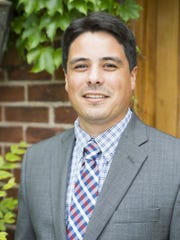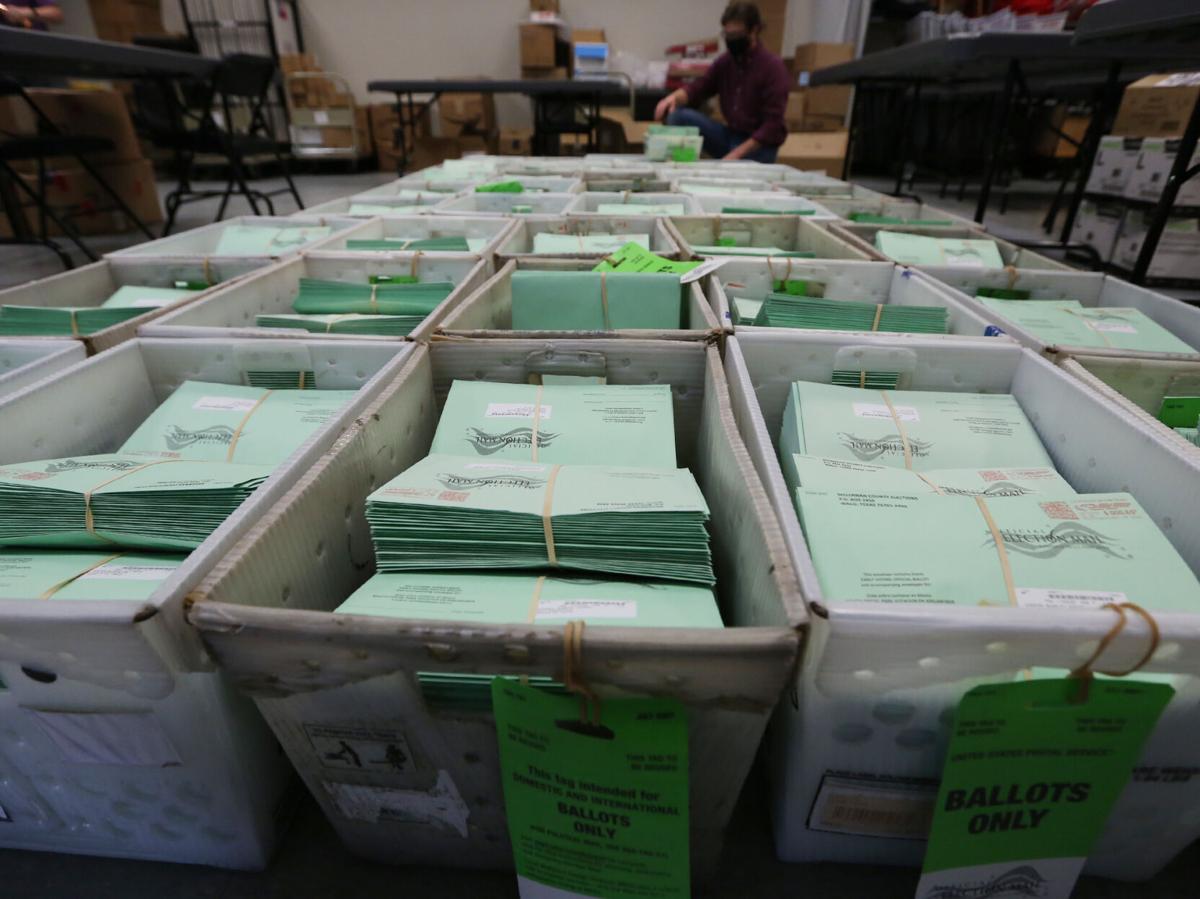CONNECTCOMMENTEMAILMORE
Shane Hernandez was eating in a local restaurant in March “the night that rumor started that restaurants were going to close” in response to the coronavirus outbreak, he said.
Already aware of the imminence of COVID-19, the Port Huron Republican said state lawmakers had begun working on their first budget related to the virus — something in the millions.
“We had a few cases, and we wanted to appropriate some money to address it,” Hernandez recalled in an interview this month.
But watching the governor’s press conference at the local restaurant with the establishment’s manager, learning about a lot of closures and stay-at-home restrictions like everyone else, he said “it set it this was going to be a significant change.”
A few cases became hundreds, and the millions in anticipated aid became an expected state budget shortfall in the billions. Now, Hernandez and other local legislators said the coronavirus has not only altered what priorities they have on tap in Lansing but may foster concerns for years to come.
“It’s completely changed things I wanted to accomplish in education that we’re just not going to be able to do because education’s going to look really different,” said state Rep. Pamela Hornberger, R-Chesterfield Township. The former East China Schools teacher chairs the House education committee.
“Right now, (the) COVID-19 issue is obviously dominating everything we do, and it’s going to have an impact on everything we do for a long time moving forward,” she said.
Big budget problems
State Sen. Dan Lauwers, R-Brockway Township, said he’s seen a bigger procedural impact than a political one from the COVID-19 outbreak.
Those changes in procedure, however, may stymie reaching solutions to budget concerns — or what Lauwers called the “single greatest challenge” facing lawmakers.
Hernandez, chairman of the state House’s appropriations committee, said some discussions on COVID-19’s impact on state finances may have to wait so the budgeting is more than “two chairs in a budget office.”
“It’s hard for us to find space that works when we can only have 25 percent of the capacity in the room,” Hernandez said. “A lot of us have already adjusted to Zoom meetings. For conversations with the budget office, between the House and Senate, I do feel these appropriation meetings should happen in person in a safe manner, but it’s difficult.”
“We have to look at every item in the budget, every item one by one. And they have to stand on their own merit,” he said. “… I’ve done exercises with our fiscal team where (they) show me every program in this budget that wasn’t here six years ago. If we made it by without it six years ago, we need to consider going (without) it. But I think we need to look at all of these decisions as temporary.”
State Rep. Gary Eisen, R-St. Clair Township, said he worried how legislators would relay details of the state’s financial woes to his district, as well, joking he was glad he’s not on the House’s appropriations committee.
“You’re looking at a $4 billion deficit next year at least,” he said. “Then, you’re a bad guy all over again when you’re taking money from something on all this extra unemployment. Those are going to be tough decisions in the next budget.”
Recent estimates put the shortfall of the current state budget at around $3.2 billion. Lauwers said the current talking points “are 2008- to 2009-type budget levels.”
“And additional policy changes that don’t cost money are more difficult to explore because of limited committee space,” he said. “But I think that’ll all be dealt with in the long-term.”
COVID an ‘inspiring factor’ to run for office, candidate says
For many of the candidates challenging incumbents for state office or vying for an open seat, COVID-19 is influencing their goals if elected.
Eisen and Hornberger are running for re-election in the 81st and 32nd districts. Hernandez is running for Congress, leaving a large roster to vie to replace him in the state house’s 83rd District. There is no state Senate election this year.
“This was the inspiring factor in that there is a lot of misinformation,” said Stephanie Armstrong-Helton, a Democrat from Fort Gratiot running for the 83rd. This November, she’ll face the top Republican vote-getter of five in August’s primary.
“There’s a lot of confusion around this crisis. And I don’t’ think our representatives are … being true to what’s happening. I think the concerns they’re hearing are on a bunch of different issues when really it’s the safety and health at the nation (that’s at stake).”
Charles Armstrong, a transport driver who lives in Port Huron, said he was motivated to join the 83rd’s crowded Republican race by the state’s recent response to the coronavirus pandemic, citing frustration with the limits placed on the public.
“What the governor’s doing and what the state legislature’s doing, they’re not making any sense,” he said. “I feel there should be a need for jobs, a right to religion, a right to assemble. Our constitutional rights are being eroded, and it’s not correct. It’s wrong.”
Tim Keller is also one of the five candidates looking to get a nod in that district, and, amid the state’s coronavirus response, he said, he’s gotten a lot more familiar with the state’s constitution.
In a recent interview, he pointed specifically to article four, section 51, which says that the legislature “shall pass suitable laws for the protection and promotion of the public health.”
Keller said he understood Gov. Gretchen Whitmer’s need to access emergency powers early in the crisis. But he said “the time for emergency is over” and that the “legislature has time to meet and do what they’re ordered to do.”
“We need to, more than ever, stick to the process because it removes the potential for abuse, and it removes the potential to say, ‘You crossed the line. You went too far,'” he said. “Keep things legal and fair.”
Keller said he supported lawmakers judicially challenging the issue of Whitmer’s emergency power earlier this month.
Judge Cynthia Stephens in the Court of Claims has since ruled that the governor has the authority to maintain Michigan’s state of emergency without support from legislators.
The Republican-led Legislature is appealing that ruling to the Michigan Court of Appeals and, at the same time, asking that court for leave to appeal directly to the Michigan Supreme Court.
Contact Jackie Smith at (810) 989-6270 or jssmith@gannett.com. Follow her on Twitter @Jackie20Smith.
CONNECTCOMMENTEMAILMORE
Read or Share this story: https://www.thetimesherald.com/story/news/2020/05/24/how-coronavirus-changing-politics-thumb-state-lawmakers/5200373002/


